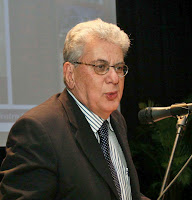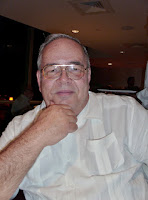PERSON OF THE YEAR 2012: BARACK OBAMA
BARACK OBAMA
TIMES MAGAZINE
PERSON OF THE YEAR 2012
El primer democrata en más de 75 años que ha obtenido dos veces la mayoría del voto popular.
Twenty-seven
years after driving from New York City to Chicago in a $2,000 Honda Civic for a
job that probably wouldn’t amount to much, Barack Obama, in better shape but
with grayer hair, stood in the presidential suite on the top floor of the
Fairmont Millennium Park hotel as flat screens announced his re-election as
President of the United States. The networks called Ohio earlier than
predicted, so his aides had to hightail it down the hall to join his family and
friends. They encountered a room of high fives and fist pumps,
hugs and relief.
The final
days of any campaign can alter the psyches of even the most experienced
political pros. At some point, there is nothing to do but wait. Members of Obama’s
team responded in the only rational way available to them — by acting
irrationally. They turned neckties into magic charms and facial hair into a
talisman and compulsively repeated past behaviors so as not to jinx what seemed
to be working. In Boca Raton, Fla., before the last debate, they dispatched
advance staff to find a greasy-spoon diner because they had eaten at a similar
joint before the second debate, on New York’s Long Island. They sent senior
strategist David Axelrod a photograph of the tie he had to find to wear on
election night: the same one he wore in 2008. Several staffers on Air Force One
stopped shaving, like big-league hitters in the playoffs. Even the President
succumbed, playing basketball on Election Day at the same court he played on
before winning in 2008.
But now it
was done, and reason had returned. Ever since the campaign computers started raising
the odds of victory from near even to something like surefire, Obama had been
thinking a lot about what it meant to win without the lightning-in-a-bottle
quality of that first national campaign. The Obama effect was not ephemeral
anymore, no longer reducible to what had once been mocked as “that
hopey-changey stuff.” It could be measured — in wars stopped and started;
industries saved, restructured or reregulated; tax cuts extended; debt levels
inflated; terrorists killed; the health-insurance system reimagined; and gay
service members who could walk in uniform with their partners. It could be seen
in the new faces who waited hours to vote and in the new ways campaigns are
run. America debated and decided this year: history would not record Obama’s presidency
as a fluke.

In mid-December, as Obama settles into one of
the Oval Office’s reupholstered chairs — brown leather instead of Bush’s blue
and gold candy stripes — the validation of Election Day still hovers around
him, suggesting that his second four years in office may turn out to be quite
different from his first. Beyond the Oval Office, overwhelming challenges
remain: deadlocked fiscal-cliff talks; a Federal Reserve that predicts years of
high unemployment; and more unrest in places like Athens, Cairo and Damascus. But
the President seems unbound and gives inklings of an ambition he has kept in
check ever since he arrived at the White House to find a nation in crisis. He
leans back, tea at his side, legs crossed, to explain what he thinks just
happened. “It was easy to think that maybe 2008 was the anomaly,” he says. “And
I think 2012 was an indication that, no, this is not an anomaly. We’ve gone
through a very difficult time. The American people have rightly been frustrated
at the pace of change, and the economy is still struggling, and this President
we elected is imperfect. And yet despite all that, this is who we want to be.”
He smiles. “That’s a good thing.”
Two years ago, Republicans liked to say that the
only hard thing Obama ever did right was beating Hillary Clinton in the
primary, and in electoral terms, there was some truth to that. In 2012 the GOP
hoped to cast him as an inspiring guy who was not up to the job. But now we
know the difference between the wish and the thing, the hype and the man in the
office. He stands somewhat shorter, having won 4 million fewer votes and
two fewer states than in 2008. But his 5 million-vote margin of victory
out of 129 million ballots cast shocked experts in both parties, and it
probably would have been higher had so much of New York and New Jersey not
stayed home after Hurricane Sandy. He won many of the toughest battlegrounds
walking away: Virginia by 4 points, Colorado by 5 and the lily white states of
Iowa and New Hampshire by 6. He untied Ohio’s knotty heartland politics, picked
the Republican lock on Florida Cubans and won Paul Ryan’s hometown of
Janesville, Wis. (Those last two data points especially caught the President’s
interest.) He will take the oath on Jan. 20 as the first Democrat in more
than 75 years to get a majority of the popular vote twice. Only five other
Presidents have done that in all of U.S. history.







Comentarios
Publicar un comentario